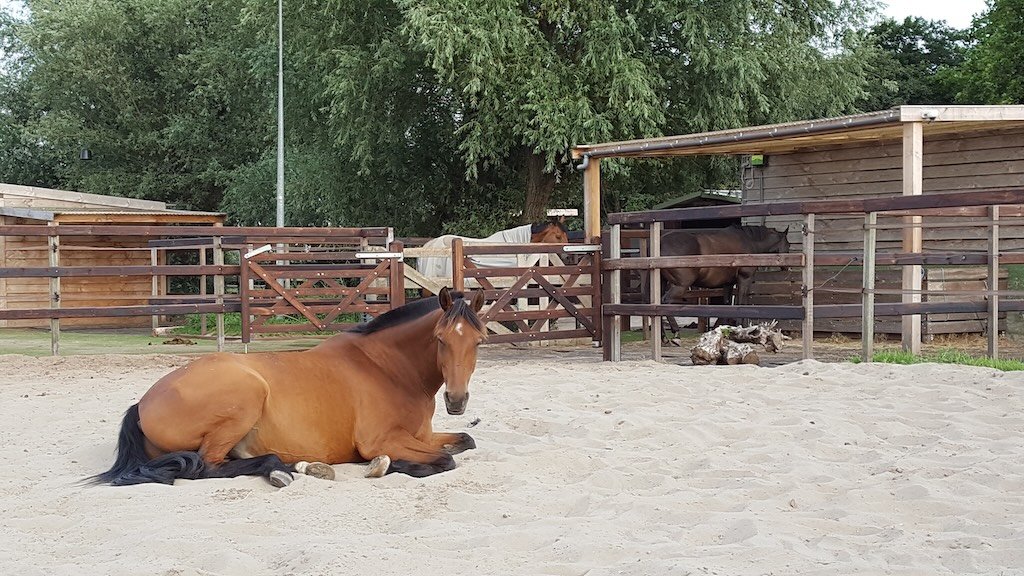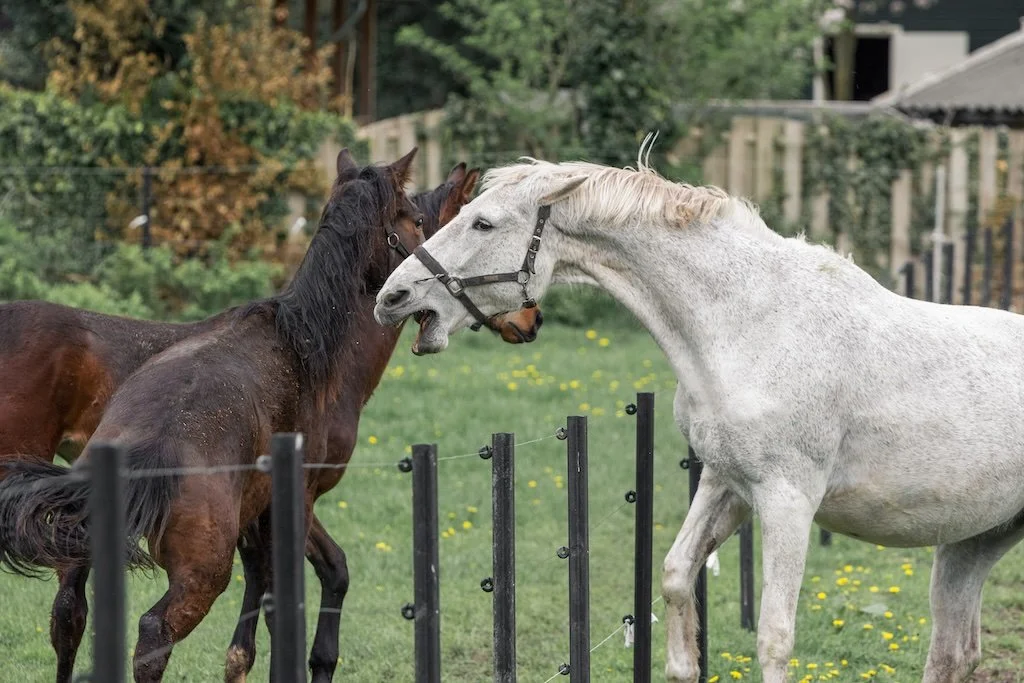Deciding where to board you horse?
Choosing a place where our horse will live can be a daunting task. There are so many factors to consider, it can sometimes be hard to make a good decision. There's the type of boarding to consider (open stable/track system/traditional stable), the distance from where you live, the people, the infrastructure...
Look for a place where the horses are relaxed, get along well and feel comfortable lying down.
Here are some things that are worth considering when deciding where to board your horse.
1. Not all track systems are created equal. If you are looking for a track system (because let's face it, those are awesome), make sure it's one that works. In fact, it is actually not that easy to create a track system that works, especially if there are many horses on it. Observe the horses already there. Are they relaxed around each other, do they lie down and chill? What's the conflict level? Are there constantly little skirmishes happening at the feeding stations? How banged up are the horses? Don't forget that life on the track can be stressful too, so if your only option is a track that's not working well, I'd advise against it.
2. How are the other horses treated? You know you take great care of your four-legged friend, but does everyone else? Spend some time at the potential stable and observe the horse-human interactions. Is there a lot of shouting and man-handling of the horses? Can you see signs of stress and is there a generally »tense vibe«? Even if the people being mean to their horses won't be interacting with your horse, it's still not a great idea to have your horse in an environment like that. How would you feel living in a house where the rest of the residents would constantly be fighting?
Herd life is great, but it can be stressful too. Make sure to choose a place where conflict levels are minimal.
3. Who will be interacting with your horse daily? When deciding where to house your horse you're usually talking with the owner of the boarding place. But in many stables, they are not the people your horse will see on a daily basis. Make sure to get to know the people who will be feeding your horse, taking him out to the pasture, making sure he is ok. These are the people who will have a huge effect on how safe your horse feels, so this is important.
4. What's the mud situation? It's bizarre that mud is an item on this list, but it is the sad reality of keeping horses, especially keeping them outside. If you are coming to see a place in the summer, when the turnouts and pastures are nice and green it's easy to forget that in winter, the situation might be different. Whole some mud is hard to avoid, a lot of it can be very detrimental to your horse's health. Don't forget to ask (or observe) how the place handles mud in the winter. Ideally, you are looking for a place that has sand paddocks for those wet winter months.
5. How busy is the place? Horses like routine and can get stressed out easily if there is too much going on. Big stables, especially competitive ones, can be incredibly busy and stressful. People come and go at all hours of the day, horses are leaving and new ones are coming, everything is constantly shifting. Changes in herd dynamics can be a hard thing for the horse, especially if they are happening often. A smaller, quieter stable is generally better, especially for the more anxiety-prone horses that get stressed out when their normal routine is broken.
6. Remember, he has to live there, you're just a visitor. When deciding whether to go for the place that has a heated tack room vs the place that has less hustle and bustle, don't forget that your horse's needs should come first. A stress-free living environment more than makes up for the lack of an indoor arena or a coffee machine. You're only there for a few hours every day, while this is his home. So, make sure it is a home that suits his specific needs – not all horses are the same when it comes to where they will feel good. And when you do move, make sure to keep an eye on him, to see how well he's fitting in.
Associated content:

